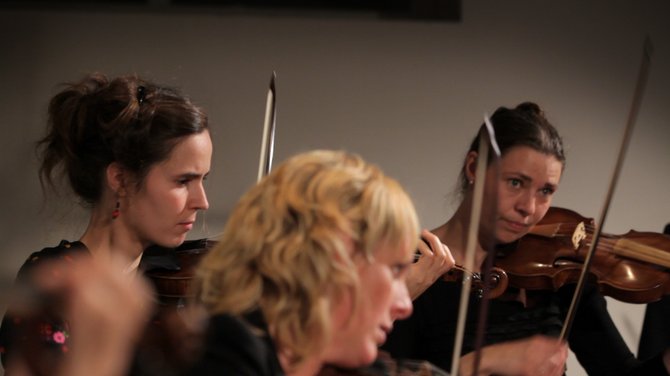“Zela Trovke” goes inside a performance of a Slovakian folk tale of murder, adding depth and context to the music.
Folk songs have existed about as long as music has been around. Some are about everyday issues; some tell a story. One type of folk song, which deals with crime, is called a moritat, such as "Zela Trovke" from Slovakia.
Cry for help. Touch of evil. Mounting tension. These are a few phrases used to describe "Zela Trovke," which translates from Slovak to mean "cutting grass."
The film of the same name tells the story of the Holland Baroque Society's performance of the piece included in their Barbaric Beauty programme. The group's violinist, Maite Larburu, sings the lyrics. The piece of music itself tells the story of a woman who performs her mundane daily chores and then brutally murders her husband without rhyme or reason. Beyond the shocking nature of lyrics, the music builds up to a nervous climax before coming to an abrupt end. One of the group's members describes the lyrics as "brutal."
The short film explores women's roles in Slovakian society in 1720, when the piece was written. As the soloist, Larburu, ponders the thoughts of this female murderess and what may have led to her actions. The first half of the film features interviews with members of the Holland Baroque Society after they performed the music in front of a live audience. They discuss the impact this music has on them as musicians, as well as how they prepared to play it.
The performance of "Zela Trovke" leaves the audience somewhat breathless, and the film's viewers are right along with the people sitting in the performance hall.
"Zela Trovke" screens at 5 p.m. April 6 on Screen B, along with "Brasslands."


